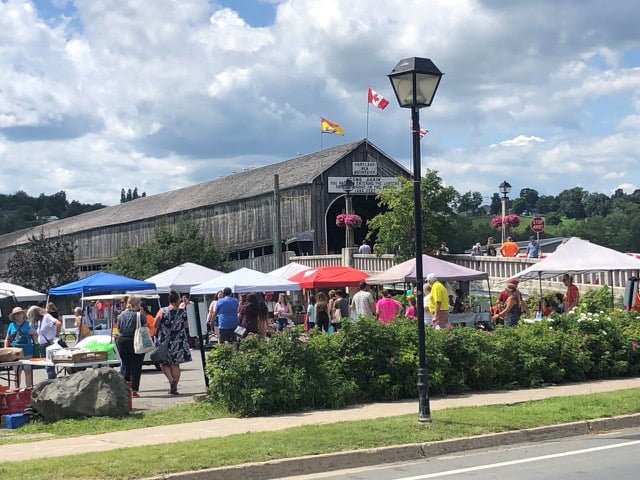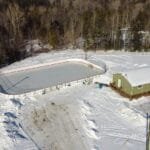Conference outlines work to lower greenhouse gas emissions at New Brunswick potato farms
By Mark Rickard
Efforts to move New Brunswick potato farms toward net zero greenhouse gas emissions by 2050 will also make the sector more resilient and profitable, predicted Dr. David Burton, director of the Centre for Sustainable Soil Management of Dalhousie University at the Potatoes New Brunswick conference, trade show and annual general meeting held at the AYR Motor Centre in Woodstock on Feb. 6.
“The amount of carbon that is being stored in our soils is the secret that is going to get us to net zero. We can adopt management practices to increase the amount of carbon stored in our soil… It will make your farms more resilient to climate change, more fertile and help you with your disease management,” Dr. Burton told farmers and industry officials. “As we develop systems that increase our carbon storage, increase the resilience of our systems, we generate environmental goods and services. I believe agriculture needs to be paid for the environmental activities we are undertaking.”
Dr. Burton urged growers to stop focusing on maximum yield and instead focus on maximum profit regarding fertilizer applications. He said efforts to improve cover crops and rotational crops on potato farms are making large strides toward increasing carbon storage. But if farmers don’t quantify these actions, there is no value for consumers.
“We need to make that information available, so we get credit for what we do… We need good data to convince farmers and others of that,” he said. “Documenting allows us to communicate with buyers that ‘I am implementing more sustainable practices and that adds value to my crop.’ ”
The soil scientist pointed out that half of the nitrogen consumed by potato plants comes from the soil, “not from the bag,” and farmers need to test and report that data on their farms.
“There are tremendous variabilities in field to field, and right now we are considering all fields (on a farm) are the same… That’s nitrogen we are wasting,” he said. “Part of this process of improvement in nitrogen management is generating documentation, to show consumers what you are doing and why it adds value to your crop.”
Tracking environmental metrics
Mohamed Yaghi, VP of Innovation Hub for Farm Credit Canada, told farmers the industry is already doing a lot that will help farming remain profitable in the future.
“Farmers are the folk the connect this country together. Farming is critical to our identity,” Yaghi said. “Farmers and ranchers across Canada are critical to our sustainability story. We have an amazing story to tell, but sometimes its just not as published as it should be.”
Yaghi cited a McMaster University study that determined Canadian farmland has 25 years of manmade emissions sequestered in the soil. He said the challenge is how farmers get paid for what greenhouse gas emissions they reduce and sequester on their farms. Yaghi urged farmers to invest in a sound data collection system.
“It’s incredible what farmers are doing today. We are stewards of the land, we are critical to our nation’s success when it comes to emissions. To tell our story, we need to be compensated for it.”
Yaghi pointed to the growing prevalence of New Brunswick shelter belts and linear tree and shrub plantings on crop and livestock lands as an environmental practice that needs to be measured and monitored.
“New Brunswick is first in the nation putting up shelter belts. There has been a 260 per cent increase in no tillage, and only 3.7 per cent of New Brunswick (greenhouse gas) emissions comes from agriculture. You are continuing to adopt these practices.”
Yaghi told farmers they need to quantify everything that happens on the farm, especially before implementing new sustainable practices, to prove the environmental gains to businesses and consumers.
“Start tracking those metrics, it will benefit you in the long term… This is missed opportunity for a lot of us. If you aren’t tracking the progress you are making on your farm, in the future when there are more incentives and rewards, you might miss an opportunity,” he said. “Agriculture compared to any other industry, are decreasing our emissions and increasing our carbon sequestration as well.”
The innovation expert said that in the future, industries will be willing to pay farms for their carbon sequestration and pay a premium to producers who can prove their crop was grown sustainably.
“Document and measure everything. It’s fun to say we are doing this, but we will have to prove it. We are already doing this today, but we have to combine all this information together.”















